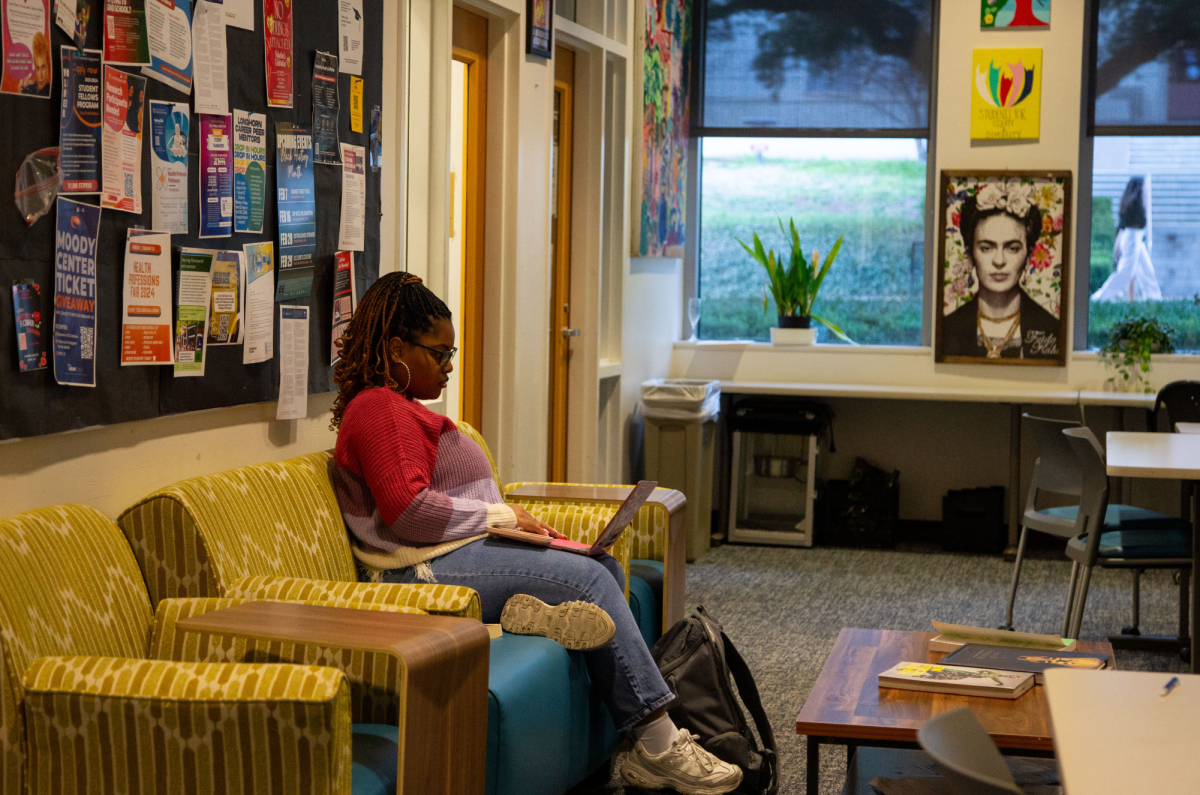The repeal of Don’t Ask, Don’t Tell almost a year ago has been a huge civil rights victory for the LGBT community, but legal issues still challenge LGBT soldiers and veterans, said Danny Hernandez, communications and development assistant for Servicemembers Legal Defense Network.
Hernandez was invited along with Anne Wynne, the founder of Atticus Circle, to speak about the legal issues facing LGBT service members on at a Tuesday afternoon talk hosted by OUTLaw, an LGBT community organization for students attending the UT School of Law. Both Atticus Circle and Servicemembers Legal Defense Network advocated for the repeal of Don’t Ask, Don’t Tell through national litigation, and OUTLaw hoped to bring more awareness of the ongoing legal struggle, OUTLaw president Samuel Rettew said.
“After Don’t Ask, Don’t Tell has been repealed, it’s very easy to think that LGBT in the military isn’t an issue, but there’s still a lot to address,” Rettew said. “There’s a sizable LGBT population and soldier population at UT and they have a vested interest in seeing the soldiers serving next to them having the same rights. It’s very powerful when people come here to join the discussion, and they realize there’s still a problem.”
Hernandez and Wynne related personal stories along with the stories of their plaintiffs in addressing the wide variety of LGBT issues following the repeal of Don’t Ask, Don’t Tell. While the repeal has ended the dishonorable discharge of soldiers, the repeal does not prevent discrimination by making LGBT soldiers a protected category or guarantee benefits for LGBT couples.
“You have to put it in context,” Wynne said. “If you were in the military and you had a partner, you couldn’t talk about your partner. You couldn’t have pictures of your partner. You had to tell a big fat lie, and if you had children, you had to tell them to tell a big fat lie, too.”
Members were also interested in incorporating these legal struggles into the day-to-day classwork of law students at UT.
“Intellectually, it’s interesting,” website and newsletter director for OUTLaw, Daniel Collins said. “If we are aren’t talking about these issues in our law class, then maybe that’s a sign that we may need more discussion, and that’s why OUTLaw holds forums like these.”
Outside the classroom, work by UT students is also important and can result in important repercussions for the LGBT community, Rettew said.
“What finally pushed the repeal of Don’t Ask, Don’t Tell was that 50 percent of the U.S., and all segments of the military except for the Marines supported it,” Rettew said. “In a broad sense, everyone can have an impact. If you bring up discourse, you’ll be exposed to something you never knew, and occasionally, you’ll have the chance to influence people who can really make an impact.”




















